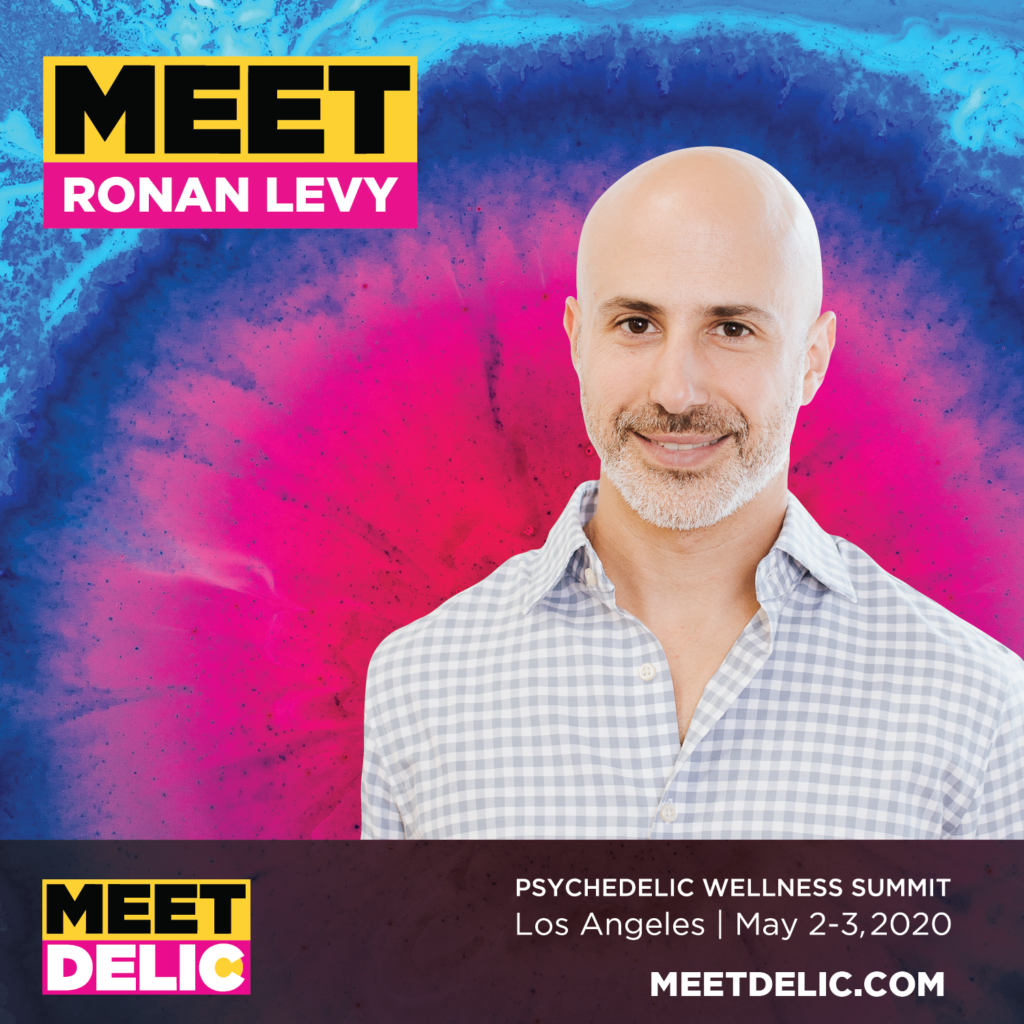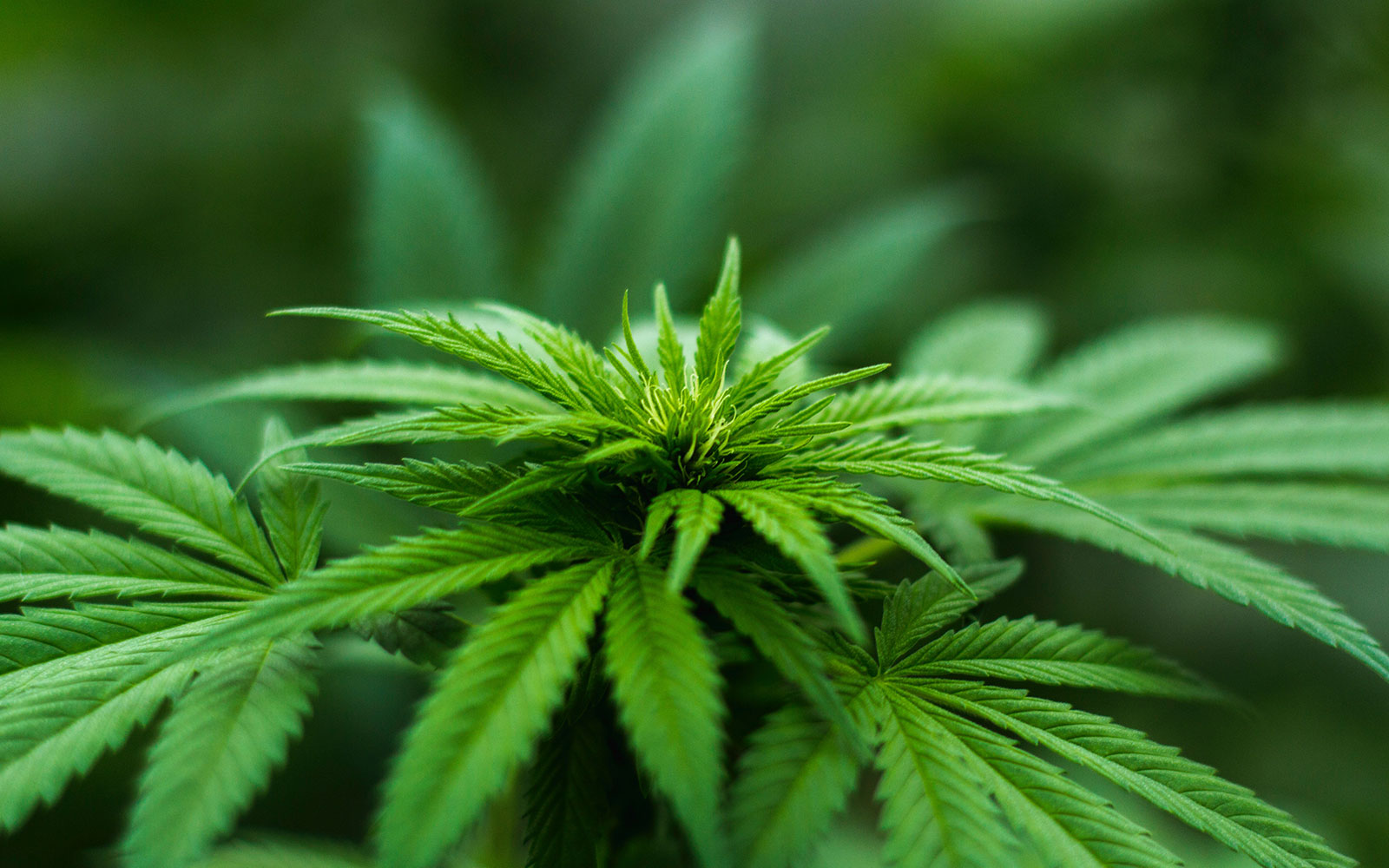Ronan Levy, with his company Field Trip Ventures, are building the infrastructure for legal psychedelic therapy.
Levy, along with his co-founders, come to the psychedelic field having formerly built the largest network of cannabis clinics in Canada–Canadian Cannabis Clinics. Bringing this knowledge and expertise, they are now setting up the first network of psychedelic clinics in the world. Locations are already set to open in Toronto and New York, with other flagship locations planned in Los Angeles, Portland and London. Furthermore, they are currently constructing the world’s first legal cultivation facility in Jamaica focused on psilocybin mushrooms. Field Trip Ventures is aiming to bring psychedelic medicine to the masses. And with millions of suffering with mental health disorders, the need for effective treatments is urgent.
“Our mission is to heal the sick and better the well.”–Ronan Levy, founder of Field Trip Ventures
We sat down with Ronan Levy to discuss Field Trip Ventures, what he learned from his extensive experience in the cannabis industry, and how to support the ethical and sustainable growth of psychedelic medicine.

Meet Ronan at Meet Delic
Ronan Levy is one of the amazing speakers that will hit the stage for Meet Delic–the first-ever psychedelic wellness summit of its kind. We’re bringing the leading minds in psychedelic science and wellness to the Wisdom LA immersive art park. Don’t miss it!
Interview with Ronan Levy of Field Trip Ventures
RS: How did you get into the psychedelic field?
RL: The background of the five founders is in the Canadian medical cannabis industry. We started two sister companies, one called Canadian Cannabis Clinics and one called Canvas RX. The former has grown to become the largest network of cannabis specialized medical clinics in Canada. And we spent a couple of years after the sale of Canvas RX to Aurora Cannabis, working with Aurora, and left about a year and a half ago to explore new opportunities.
During that period of exploration, we came across Michael Pollan’s book, How to Change your Mind. And we met one entrepreneur that was trying to raise capital for a pharmaceutical focused start-up in the psychedelic space. This opened our minds to the potential of psychedelics and psychedelic-assisted therapy both from an impact as well as an economic perspective. So we spent some time reading Michael Pollan’s book, researching the space, and trying to understand the players. Then eventually we realized that there was a great opportunity. We could leverage some of our core strength and much of our experience from the cannabis industry into helping create a future market, community and business in psychedelics. And that’s what led to Field Trip.
RS: Do you feel the psychedelic industry will have an even greater impact on people’s lives than the cannabis industry has?
RL: Cannabis has certainly been a remarkable game changer for many of our patients. It’s improved their quality of life, particularly in dealing with chronic conditions and pain management. But, by in large, cannabis helps relieve the symptoms of the underlying condition. It doesn’t always, most typically doesn’t, relieve the underlying cause. Whereas psychedelics seem to have the potential to really fundamentally address some of the most challenging chronic mental health conditions out there.
Most of the patients who came through our clinics at Canadian Cannabis Clinics had some kind of physical condition. But very often some mental health component overlapped it. There’s a saying that if you heal the mind, you heal the body. It’s really interesting. There’s not a whole lot of evidence out there. But, it seems like if you can improve people’s mindsets, change their outlook, change their habituation in terms of the pathways that their brains use, you have the potential not only to affect their mental health but their physical health as well. Now that’s purely speculative. Even just assuming that we can fundamentally address depression and PTSD through these clinics, I think the impact is going to be so significant.
RS: From your experience in cannabis, what lessons are you carrying with you? What do we need to be mindful of as this industry grows?
RL: The most important thing is to be prudent. With Canadian Cannabis Clinics, we took patient’s care and the best medical evidence and advice. Then we applied that to the cannabis industry. That enabled the local medical community to believe in the type of care we were providing. And by building that trust, it opened the medical community’s mind to cannabis. I think that’s what really facilitated the growth of medical cannabis in Canada and beyond now. We did it right, and didn’t identify cannabis as a panacea as some people do.
We said, “It’s good for some things. It’s not good for other things, and there’s a whole host of things that we don’t know about it. But, it makes sense to use for patients who present in this way.” By speaking like that, by providing follow-ups to the referring physicians, by doing it prudently, that built support for cannabis and opened minds.
Another piece to answer your question: don’t let the hype get ahead of the evidence. CBD is definitely being spoken about as a panacea for just about everything that ails you these days. In some respects that’s good. CBD is potentially a very potent therapeutic molecule. I think we’re going to experience a backlash against CBD because the actual data is almost certainly never going to live up to the hype. And I don’t want to see that happen with psychedelics. There’s so much promise in psychedelics and psychedelic-assisted psychotherapy. We want to keep the momentum moving forward and positive. If we open people’s minds, provide the data to confirm the statements, that will lead to a much healthier, sustainable level of growth.
RS: Let’s talk about Field Trip Ventures – what is it and the different branches within it?
RL: With Field Trips, we’re the process of building the first network of psychedelic focused medical clinics in the world. The initial five may expand to many more, much sooner than we were planning but that’s great. Those clinics will exist as a starting point to provide psychedelic medicine. The clinics will also support clinical trials, the ones existing and the future ones.
From our perspective, psychedelic medicine is anything that shrinks the ego and temporarily suspends the DMN. Thus, that enables psychotherapy to have a much greater impact and outcome than conventional psychotherapy. The classic psychedelics are still unfortunately all scheduled. So, we can’t really work with them. We will work with them when our sites are used for clinic trails. But outside of clinical trials, we’ll work with ketamine as a starting point. Ketamine is not conventionally seen as a psychedelic, it’s a dissociative anesthetic. But it actually offers many of the same experiential features as psychedelics, enough to open people up to greater impact of psychotherapy.
We will also provide integrated ketamine treatment to people who choose to participate with psychedelics on their own. We certainly would never advocate that people take psychedelics outside of the context of a medical professional. But we want people to have access to care and the necessary support.
RS: What is the value of building clinical models for these drugs? And, is this a traditional medical model or a new system?
RL: It’s a bit of a hybrid. Presently, conventional general practitioners tend to be the frontline in treating most mental health conditions. And typically, they are the largest prescriber of antidepressants and other mental health drugs. They’re just not equipped to support this. So, we’re building a new clinical model. It provides the physical infrastructure as well as the care and the integration. The existing infrastructures are just not well-suited to provide this kind of care to a large number of people. And by providing it to a lot of patients, and still providing great care, hopefully we can also bring down the cost. Anything we can do to reduce the cost while still providing great quality care is going to help this reach the greatest number of people and deliver the greatest amount of impact.
M: Since you touched upon accessibility and cost, how do you see insurance factoring into this equation?
R: With ketamine assisted psychotherapy, many benefit plans do cover some degree of some psychotherapy in the coverage, so being thoughtful about how we price the care and emphasize the psychotherapy over the pharmacological agent. We’ll be starting ketamine because it’s relatively low cost. It should position most people to be able to look at some degree of coverage. In Canada, it’s a little different because we have a socialized health care system.
Plus, having a patient get one or two transformational doses and be relieved of depression symptoms for potentially a year or longer is going to become more cost-effective than keeping people on SSRI’s and benzos over the course of a lifetime. So the economics of psychedelic-assisted therapy, even though more expensive on an upfront basis, are probably going to be lower cost on a long-term basis.
RS: Let’s move to the second pillar of Field Trips, which is research.
RL: We announced about six weeks ago now the commencement of construction of the world’s first legal and cultivation facility focused on psilocybin producing mushrooms. Ultimately we’d like to expand that to all plant-based psychedelics. But we’re starting with psilocybin. The purpose of that facility is really two fold.
There’s a very real possibility that in the next year or two that you’ll see a market for psilocybin producing mushrooms, as opposed to just the synthetic molecules that underpins much of the research right now. And there is no one out there who has really developed the standard procedures and protocols to produce consistent high quality psilocybin producing mushrooms that are safe and would pass all analytical testing standards, that may apply to the cannabis industry, for instance. So part of the work we’re going to do is develop cultivation techniques and ways to produce psilocybin, and potentially other molecules. in a very efficient, very safe, very replicable manner.
Now the more important part of the research we’re doing in Jamaica is the basic plant research. No one has really studied psilocybin producing mushrooms in-depth. With cannabis, there have been 150 cannabinoids identified beyond THC and CBD. Our hypothesis is that you’ll find a number of other interesting molecules in psilocybin producing mushrooms, just like cannabis. So really what we hope to do there is to go over these novel molecules and potentially new tryptamine alkaloids, characterize them and then assess their potential for their therapeutic impact as well.
RS: Do you think we’re going to see a refinement of the psychedelic experience like we’ve seen in cannabis?
RL: Predictability and understanding of the experience is going to open this up to a broader audience, both in terms of patients as well as medical professionals. Which is knowing the outcomes to some degree. That’s going to make people more comfortable with exploring psychedelic-assisted therapy. We also have a healthy respect that some people will want to keep it very natural even if it’s unpredictable.
RS: On a podcast, you proposed to looking at psychedelics as tools for mental fitness. Why it is important to project a positive image of mental health?
RL: Most people accept that going to the gym and being proactive in terms of maintaining your physical fitness is a good idea. That generally improves the wellbeing health and longevity of most people. We don’t yet have that for mental health. The awareness of emotional health and wellbeing as a proactive process as opposed to a reactive process is becoming more and more public. But I think psychedelics can potentially open that up to a much bigger audience.
RS: Clinical medical applications versus advocates of adult use: how do you see those two agendas functioning together?
RL: We’re definitely supportive of a more wellness market. Meaning, they are being provided in the context of a medical professional who can oversee the care. That ensures the safety of the people who are participating. It maximizes the likelihood of positive outcomes and minimizing the likelihood of negative outcomes. To the extent that people want to see an open recreational market where you can buy mushrooms in dispensaries, or anything along the lines of cannabis? I don’t think we have any inherent opposition to them. Except for the fact that there isn’t enough evidence to understand the long-term impacts on that. Let the data catch up and then we can have that conversation.
RS: There is a lot of concern in the psychedelic community about capitalism and commercialism – do you have any thoughts about that?
RL: We came at that issue from the perspective that Triple Bottom Line Capitalism, that focuses on people, profit then planet is the best way to make psychedelics available. Capitalism, at its most extreme, can create very negative outcomes. But capitalism done well and thoughtfully can create the greatest amount of positive impact. That’s why we’re pursuing this as a for-profit enterprise. And we don’t offer any apologies for that because we’re going to do it in the right way, consciously and thoughtfully.
Are the concerns of the people in the community valid that the interests from businesses as well as mainstream acceptance are going changing the community? Absolutely. It is going to change and I don’t think that’s necessarily a bad thing. Subcultures can’t remain subcultures and be mainstream. It’s inherently contradictory. So I’m entirely sympathetic to that concern. But trying to predefine the rules of how this all emerges is going to be challenging. Because we don’t know how this goes. We don’t know what it looks like. So it’s more important to maintain an open dialogue with all the participants and make sure that everyone gets the necessary respect. And then hopefully we can all do this together in a very cooperative way even if it’s not inherently communal.
RS: Is there anything missing from the conversation about psychedelics currently?
RL: I think more thoughtful open discourse about what is safe and not safe. Psychedelics aren’t the demonized molecules. Nor are they entirely harmless and should be afforded a healthy amount of respect.
RS: What piece of advice would you give to yourself at 20 years old? Or, is there a piece of advice that still resonates with you that you could share?
RL: “It’s never too late to have a happy childhood.” (Tom Robbins)













